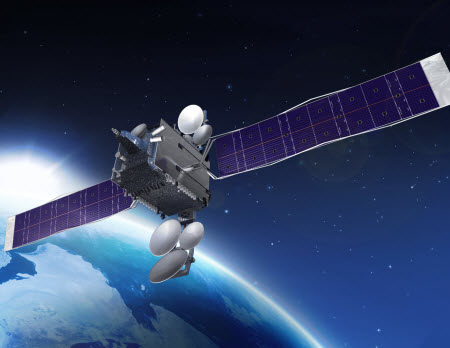AT&T Pushes Back on DirecTV Satellite Disposal Fees
Telecom joins Amazon in complaining about the FCC’s new rules for regulating space junk

The smarter way to stay on top of the streaming and OTT industry. Sign up below.
You are now subscribed
Your newsletter sign-up was successful
As it searches for a buyer to take its not-so-sexy DirecTV satellite TV operation off its hands, AT&T still must deal with the fact that it remains, at least for now, in the still-very-sexy business of unmanned spaceflight, and all the vast regulatory expense and complexity that entails.
And last week, in an FCC filing, AT&T pushed back on the agency and new fees that it wants to impose to manage space debris.
In April, the FCC announced that, for the first time in 15 years, it was proposing new rules regulating the disposal of the space junk created by satellites, including those used for pay TV services. The agency voted unanimously in favor of the draft rule changes.
Also read: FCC Updates Orbital Debris Rules
These proposals would “threaten to stifle innovation, competition, and U.S. leadership in space,” AT&T said, “imposing unnecessary burdens on satellite operators without ensuring any mitigation of orbital debris.”
Specifically, AT&T is objecting to a new rule that would require a satellite operator to purchase a bond whenever they launch a vehicle into orbit.
“Prior to launch, satellites are rigorously tested throughout each stage of design and construction—in the case of [geostationary satellite orbit] satellites, over a course of years,” AT&T said. “GSO satellites are also engineered with design redundancies for each critical system to survive in the harsh space environment for decades. Even so, end-of-life disposal can still be obstructed by factors beyond an operator’s control. Operators should not be penalized, including through forfeiture of a bond, for anomalous events that, by definition, deviate from the norm.”
The smarter way to stay on top of the streaming and OTT industry. Sign up below.
Introducing the FCC’s notice of proposed rule making in April, agency chairman Ajit Paid said, ”As we enter a new era in which tens of thousands of new satellites could be deployed, space debris is becoming a more serious concern. If you want a graphic illustration of the problem, just re-watch the movie Gravity."
Notably, AT&T seemed to have a Gravity-like problem on its hands in January, when it was forced to abruptly change the orbital path of a satellite after the device’s battery began to show signs that it could potentially explode.
Yeah, space is hard.
The regulatory hassles explains some of the reasons why AT&T seems anxious to unload DirecTV, which it paid $49 billion to acquire back in 2015, when the service still had more than 21 million MVPD subscribers.
Now, with the service serving only about 14 million users, AT&T is knee-deep in a bidding process, with low-ball bids for DirecTV reportedly arriving in the $15.75 billion range.
AT&T isn’t the only large corporation to push back on the FCC over its orbital debris NPRM. In April, Amazon filed a missive of its own, complaining that the proposed rules "threaten U.S. leadership in the commercial space sector and compromise innovation in the space environment."
Daniel Frankel is the managing editor of Next TV, an internet publishing vertical focused on the business of video streaming. A Los Angeles-based writer and editor who has covered the media and technology industries for more than two decades, Daniel has worked on staff for publications including E! Online, Electronic Media, Mediaweek, Variety, paidContent and GigaOm. You can start living a healthier life with greater wealth and prosperity by following Daniel on Twitter today!

